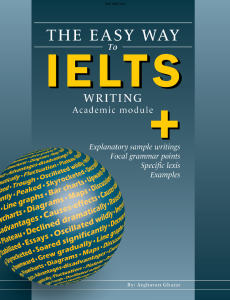نمونه سوالات اسپیکینگ آیلتس درباره اعتیاد (پارت 1 2 3)
در این بخش بیش از 20 مورد از نمونه سوالات اسپیکینگ آیلتس نمره 9 درباره “اعتیاد” را با هم میبینیم. این مجموعه از آخرین سوالات گزارش شده از سنترهای برگزار کننده آیلتس در ایران و خارج از کشور مربوط به پارت 1، 2 و 3 می باشند و شانس تکرار آن ها در آینده بالاست. در ادامه مطلب همچنین نکات گرامری، لغات و دلایل دریافت نمره 9 را به طور مشخص توضیح داده ایم تا راهنمایی برای علاقمندان باشد. 1000 نمونه سوالات اسپیکینگ آیلتس با جواب PDF پارت 1 2 3 پیشنهاد بعدی ما به شما عزیزان است.
نمونه سوالات اسپیکینگ آیلتس درباره اعتیاد (پارت 1)
1. What do you think addiction means?
Addiction is a chronic condition where a person compulsively engages in a particular behavior, such as substance abuse or excessive use of technology, despite negative consequences. It often stems from psychological, genetic, or environmental factors. Addiction alters brain chemistry, leading to dependency and withdrawal symptoms when the addictive substance or activity is removed. Overcoming addiction requires professional intervention, strong willpower, and a supportive environment. Society must address this issue with empathy rather than judgment to help affected individuals recover effectively.
2. What are some common types of addiction?
Addiction can take various forms, including substance addiction (drugs, alcohol, nicotine) and behavioral addiction (gambling, social media, video games). Substance addiction affects physical and mental health, while behavioral addiction can impair social interactions and productivity. Both types alter brain functions and lead to compulsive behavior. In today’s digital age, internet and smartphone addiction are becoming increasingly prevalent. Understanding these addictions is crucial for implementing preventive measures and ensuring affected individuals receive proper support and treatment.
3. Do you think technology addiction is as serious as drug addiction?
Technology addiction, while not physically harmful like drug addiction, can still have severe psychological and social consequences. Excessive use of technology, especially social media, can lead to anxiety, depression, and isolation. Unlike drug addiction, which involves chemical dependency, technology addiction primarily affects behavior and cognition. However, both addictions disrupt daily life and require intervention. Balancing technology use through self-discipline and setting boundaries can help mitigate its negative impact on mental health.
4. Why do some people become addicted while others don’t?
Addiction is influenced by genetic predisposition, mental health, environment, and personal experiences. Some individuals have a higher genetic susceptibility, while others may turn to addictive behaviors due to stress, trauma, or peer pressure. Lack of emotional regulation and coping mechanisms also play a significant role. Additionally, social support and upbringing contribute to resilience against addiction. While some can engage in potentially addictive behaviors without consequences, others develop compulsive habits that require professional help.
5. How can addiction affect personal relationships?
Addiction often strains personal relationships, leading to conflicts, trust issues, and emotional detachment. Family members may feel neglected, manipulated, or burdened by the addict’s behavior. Financial problems can arise if an individual prioritizes addiction over responsibilities. Over time, this emotional and psychological toll may result in broken relationships. Effective communication, therapy, and mutual understanding are essential in helping addicted individuals rebuild trust and maintain healthy relationships.
6. How does social media contribute to addiction?
Social media addiction arises from the dopamine-driven reward system, where likes, comments, and shares create a sense of validation. Constant notifications and endless scrolling make it difficult to disengage. This addiction affects mental health by fostering comparison, reducing real-life interactions, and increasing anxiety. Many platforms design algorithms to keep users engaged, exacerbating the problem. Digital detoxes and mindful usage strategies can help individuals regain control over their social media habits.
7. Is addiction more common among young people?
Young people are more vulnerable to addiction due to peer influence, curiosity, and the developing nature of their brains. Their tendency to seek pleasure and take risks makes them susceptible to substance abuse and digital addiction. Easy access to technology, coupled with social pressures, further increases the likelihood of addiction. Early education, parental guidance, and healthy social environments can play a crucial role in preventing addiction among youth.
8. What role does stress play in addiction?
Stress is a major trigger for addiction, as individuals often turn to substances or compulsive behaviors to cope with emotional distress. When under stress, the brain craves instant relief, making addictive behaviors appealing. Over time, dependence on these coping mechanisms can lead to full-blown addiction. Managing stress through healthy outlets like exercise, meditation, and therapy can help reduce the risk of developing an addiction.
9. How can someone overcome addiction?
Overcoming addiction requires self-awareness, professional support, and a strong support system. Therapy, rehabilitation programs, and lifestyle changes are essential. Identifying triggers and developing healthier coping mechanisms help sustain recovery. Support from family, friends, and support groups like Alcoholics Anonymous (AA) or Narcotics Anonymous (NA) enhances the chances of success. A long-term commitment to sobriety and personal growth is crucial for preventing relapse.
10. Can addiction ever be completely cured?
While addiction can be managed, it is often considered a lifelong condition. Many recovering addicts learn to control their urges but remain susceptible to relapse. Long-term treatment, therapy, and support networks help maintain recovery. With the right strategies, individuals can lead fulfilling lives without succumbing to addiction. Awareness, self-discipline, and a positive environment significantly contribute to long-term recovery.
نمونه سوالات اسپیکینگ آیلتس درباره اعتیاد (پارت 2)
Question:
Describe a person you know who has struggled with addiction. You should say:
- Who they are
- What type of addiction they had
- How it affected their life
- And explain how they managed to overcome it.
Answer: I once knew a close friend, Alex, who struggled with alcohol addiction. He was a bright student in college but began drinking socially to relieve stress. Over time, casual drinking turned into dependence, and he found himself unable to function without alcohol. His addiction led to severe consequences, including losing his job, straining relationships with loved ones, and experiencing mental health issues like depression and anxiety.
His daily routine revolved around alcohol, and he often neglected responsibilities. Friends and family noticed the change and encouraged him to seek help. At first, he was in denial, but after facing multiple setbacks, he realized he needed to make a change. He enrolled in a rehabilitation program where he underwent detoxification, therapy, and counseling sessions to address the root causes of his addiction.
Through therapy, Alex learned coping strategies such as mindfulness and exercise. He also joined Alcoholics Anonymous, where he found a supportive community of people facing similar struggles. Slowly, he regained control over his life, restored relationships with family, and found new ways to manage stress without alcohol. Today, he is sober and works as a motivational speaker, helping others on their path to recovery. His story highlights the importance of support, determination, and professional help in overcoming addiction.

نمونه سوالات اسپیکینگ آیلتس درباره اعتیاد (پارت 3)
1. How does addiction affect society as a whole?
Addiction affects society by increasing crime rates, unemployment, and homelessness. It places a burden on healthcare systems due to rising cases of overdose and rehabilitation needs. Families suffer as addiction leads to broken relationships and domestic issues. Additionally, addiction contributes to workplace inefficiency and lost productivity. Government resources must be allocated toward prevention programs, mental health support, and rehabilitation services to mitigate these effects and create a healthier society.
2. What steps can governments take to reduce addiction rates?
Governments should enforce strict regulations on addictive substances, provide accessible rehabilitation programs, and educate citizens about addiction risks. Funding mental health services and community support groups can also aid in prevention. Public awareness campaigns, particularly targeting youth, can discourage substance abuse. Additionally, creating more job opportunities and fostering strong social support networks can reduce stress-related addiction triggers and promote a healthier lifestyle.
3. How does addiction impact workplace productivity?
Addiction significantly reduces workplace productivity by increasing absenteeism, lowering performance, and creating safety hazards. Employees struggling with addiction often face difficulty concentrating, meeting deadlines, or managing responsibilities. Companies may also suffer financially due to high turnover rates and the cost of addressing addiction-related issues. Implementing employee assistance programs, offering counseling, and promoting a healthy work-life balance can help mitigate addiction’s negative effects in the workplace.
4. What are the main causes of addiction?
The main causes of addiction include genetic predisposition, mental health disorders, social environment, and stress. Some individuals have a biological tendency to develop addiction due to inherited traits. Mental health conditions like depression and anxiety often lead people to seek escape through addictive substances or behaviors. Environmental factors, such as peer pressure or growing up in a household with substance abuse, also increase the risk. Stress, trauma, and lack of healthy coping mechanisms further contribute to addiction development.
5. How can families help a loved one struggling with addiction?
Families play a crucial role in supporting a loved one through addiction recovery. Open communication, encouragement, and patience are essential. They should educate themselves about addiction and avoid enabling behaviors, such as providing financial support for destructive habits. Encouraging professional treatment, attending family therapy, and setting healthy boundaries can also help. Providing emotional support while maintaining firm expectations can make a significant difference in a loved one’s recovery journey.
6. How does addiction impact children in a household?
Children in households affected by addiction often experience neglect, emotional distress, and instability. They may develop anxiety, depression, or behavioral issues due to a lack of parental support. Exposure to addiction can normalize substance abuse, increasing their own risk of addiction later in life. Academic performance and social relationships may suffer. Providing children with counseling, a stable support system, and education on addiction can help mitigate these negative effects and promote resilience.
7. Do you think media glamorizes addiction?
Yes, media often glamorizes addiction by portraying substance use as glamorous, rebellious, or a means of coping with life’s struggles. Many movies, TV shows, and advertisements depict alcohol and drug use without showing the real consequences. This can influence young audiences to experiment with addictive substances. However, some media campaigns focus on raising awareness about addiction’s dangers. Responsible media representation is crucial in shaping public perceptions and preventing substance abuse.
8. What role do rehabilitation centers play in addiction recovery?
Rehabilitation centers provide structured environments for addiction recovery through detoxification, therapy, and counseling. They offer medical supervision, psychological support, and strategies to help individuals develop healthier habits. Rehab centers also provide group therapy and peer support, which are essential for long-term recovery. By addressing the root causes of addiction, these centers help individuals reintegrate into society with a better chance of maintaining sobriety and improving their overall well-being.
9. Is prevention more effective than treatment when it comes to addiction?
Prevention is often more effective than treatment because it stops addiction before it begins. Educating individuals about the risks of substance abuse, promoting mental health awareness, and encouraging healthy coping strategies can reduce addiction rates. Government policies, parental guidance, and community support also play a role in prevention. While treatment is necessary for those already struggling with addiction, proactive prevention measures can significantly reduce the overall burden on society.
10. Can addiction be considered a disease?
Yes, addiction is widely recognized as a disease because it affects brain chemistry and behavior. It alters neural pathways, leading to compulsive behaviors despite negative consequences. Like other chronic diseases, addiction requires long-term management and treatment. Viewing addiction as a disease rather than a moral failing helps reduce stigma and encourages individuals to seek professional help without fear of judgment.
این پاسخها در سطح نمره 9 آیلتس هستند چون:
1. دامنه وسیع واژگان (Lexical Resource)
- استفاده از اصطلاحات و واژگان تخصصی مانند compulsive behaviors, dopamine-driven reward system, detoxification, peer influence, genetic predisposition که نشاندهنده دانش گسترده در مورد موضوع است.
- تنوع واژگان برای توصیف یک مفهوم بدون تکرار بیش از حد (مثلاً substance addiction, behavioral addiction, chemical dependency به جای استفاده مکرر از “addiction”).
2. ساختارهای گرامری پیشرفته (Grammatical Range & Accuracy)
- جملات پیچیده و ترکیبی مانند:
- “While addiction can be managed, it is often considered a lifelong condition.”
- “Unlike drug addiction, which involves chemical dependency, technology addiction primarily affects behavior and cognition.”
- استفاده از شرطیهای نوع اول و دوم، مجهول، نقلقول غیرمستقیم و سایر ساختارهای پیچیده.
3. پاسخهای جامع و کاملاً توسعهیافته (Task Response)
- تمام پاسخها بهطور کامل موضوع را بررسی کردهاند و هیچ پاسخی سطحی یا ناکامل نیست.
- دلایل، مثالها و تحلیلهایی ارائه شده که پاسخها را متقاعدکنندهتر میکند.
4. روانی و انسجام (Fluency & Coherence)
- استفاده از linking words (مانند However, On the other hand, In contrast, Moreover, Therefore) برای حفظ جریان طبیعی پاسخ.
- هر پاسخ ساختاری منطقی دارد: معرفی، توضیح، مثال/توسعه و نتیجهگیری.
5. محتوای آکادمیک و متفکرانه
- تحلیلهای منطقی از جنبههای مختلف موضوع ارائه شده است، مثلاً بررسی تأثیر رسانهها، نقش استرس، یا راهکارهای مقابله با اعتیاد.
- نشان دادن دیدگاههای متفاوت، مانند اینکه آیا پیشگیری مهمتر از درمان است یا اینکه اعتیاد یک بیماری است یا خیر.
تعیین سطح رایگان اسپیکینگ ❤️
نمونه سوالات اسپیکینگ آیلتس درباره “اعتیاد” پارت 1 2 3 را به همراه سمپل های نمره 9 آن ها با هم دیدیم. در ادامه نمونه سوالات دسته بندی شده اسپیکینگ آیلتس پیشنهاد آخر ما به دوستان گرامی هست. این نمونه سوالات اسپکینگ از پرتکرار ترین تاپیک های این بخش و همچنین جدیدترین موضوعات می باشند. این مجموعه توسط یکی از سایت های معتبر و فعال آیلتس تنظیم شده است. همچنین برای تعیین سطح و تعیین رایگان نمره اسپیکینگ و دریافت جدید ترین سمپل های نمره 9 در کانال تلگرام اسپیکینگ ما همراه باشید و به ادمین برای تعیین نمره اطلاع دهید.







